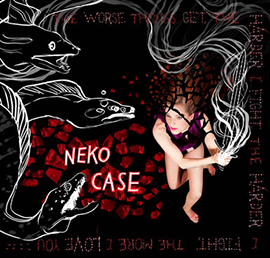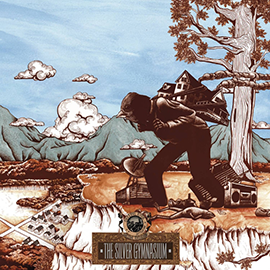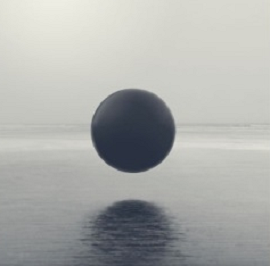Neko Case
The Worse Things Get, the Harder I Fight, the Harder I Fight, the More I Love You
It’s a little over a decade and a half since her first album release and still Neko Case manages to remain fresh. On The Worse Things Get…, understanding that Case was struggling with depression lends nuance to where these 12 tracks are coming from. Laden with lyrical depth, based in country but transcending various genres, and straddling some very stripped down instrumentals, there’s some great pain but also a lot of beauty here. Truly one of the best albums of the year, every song is strongly independent yet still works cohesively, with Case’s smooth vocals driving the album. One song, “Man,” is consumed with purposeful angst that Case airs against perception of the sexes. Then “Nearly Midnight, Honolulu” pulls back completely to highlight the lyrics, focused on a child who will grow up with a loveless mother. Later on “Calling Cards,” magnificent in its simplicity, is the quiet story of a distanced relationship. Finally, while the second-to-last track is consumed with a haunting loneliness, the album closes with “Ragtime,” a track that rips the weight and shackles that constrained the album are being ripped apart. The trumpet kicks in and Case’s voice exhilarates, ending on the lyrics: “I’ll reveal myself when I’m ready / I’ll reveal myself invincible soon.”
Okkervil River
The Silver Gymnasium
Countless bands strive for sincerity through music, and although songwriters may have honest intentions, those intentions have to be accompanied by a certain quality of music if they hope to make an impression on the listener. Will Sheff, Okervil River’s lead singer and songwriter, has never been shy about distilling his personal past in his lyrics and on The Silver Gymnasium remains thoughtful and calculated regarding how he uses his music to interact with the world, or specifically on this record, his hometown. Sheff acknowledges in “Down Down the Deep River” that, “We can never go back. We can only remember.” It’s this kind of unbridled and hard-hitting honesty that, when accompanied by powerful imagery and beautiful arrangements, help the listener understand Sheff’s recollection of Meriden, New Hampshire. As a whole, Okkervil River sounds positively alive on Silver Gymnasium, offering their most accessible record to date. While it is unlikely it will reach the commercial heights of Bruce Springsteen’s blockbuster Born in the U.S.A. or Arcade Fire’s The Suburbs, The Silver Gymnasium matches those records in expertise about small-town living; how returning there can never capture the feeling of going back.
Braids
Flourish // Perish
Transitioning from patient, building guitars to a stronger emphasis on keyboards and drum programs, Braids expressly doesn’t repeat its debut album Native Speaker. Less dramatic, more scrambled and wandering, each track on Flourish // Perish is separated by what seems like longer than normal pauses, and instead of the rise/fall id-releases of Raphaelle Standell-Preston, melancholy, in the form of dreams (“Together”), nostalgia (“Hossak”), and small lapses in competence (“Victoria”), seems to pervade this time. It’s a lot closer to Blue Hawaii, Standell-Preston’s other group. Untogether, released earlier this year, in places feels the same: fear of fragmentation and existential doubt are balanced by occasional outside perspectives (“The Other Day” there, “December” and “Amends” here). Untogether is the more enigmatic and inconsistent of the two, but that’s part of its approach – Flourish // Perish, in the same way, is an album that grows, taking its flaws and off-kilter enunciations as part of the strange whole, but is assured of its direction. It builds from an initial suggestion to “get out of my head” (ignored, indulged for album’s length) to the awakening, full-powered “In Kind” – the exuberance and clarity of Native Speaker reached after an account of confusion.
Fiver
Lost the Plot
Simone Schmidt takes the moniker Fiver for this album, and her solo project is simple, spare, and haunting. Her sound smacks more than a little of the wild west, but not in an annoying way; I would compare her smoky, unpretentious alto voice to Joni Mitchell, or maybe Lana del Ray with a background in literature instead of club music. The album opens with “Oh Sienna,” which (as far as I can understand) is both a love song and a heartbreak song: “I may not ever love again, at least not in the way I could before,” she croons, and you can picture her in a smoky bar, singing low into a microphone and cradling a glass of whiskey.
The best song comes in “Saddest Laugh,” which tackles the resigned feelings of the end of a relationship – it’s not a dramatic or explosive breakup, but the kind of love that fades over time. “I let you go in fits and squeals,” she begins. “There’s nothing to say to the plans that we made / they’re nothing / they never became.” She nails the world-weariness and devastating (yet common) grief by seasoning it with a chorus that hints at the contrasting emotion it used to be. A couple of layers of rhythm guitar back up each song, accented with restrained tambourine and the occasional barely-audible violin. The addition of an echoing reverb on everything gives us the idea that she’s singing in a totally empty auditorium or on the edge of a canyon – the finishing touch on the wild west, desert-y feel of the whole album.





